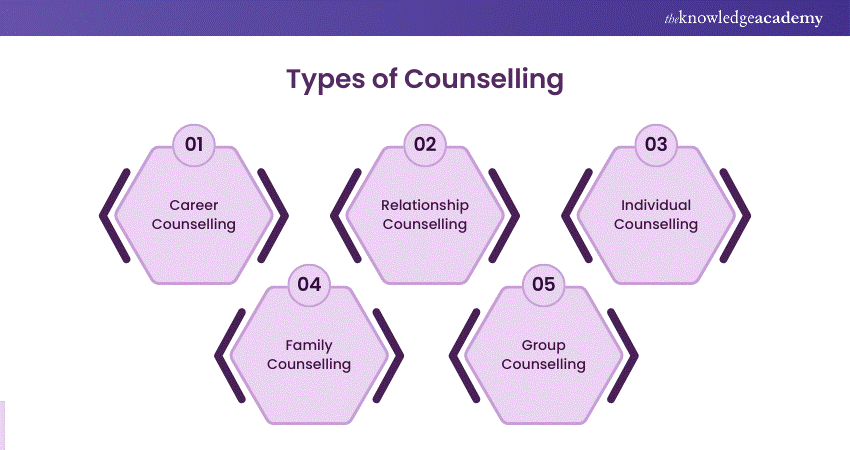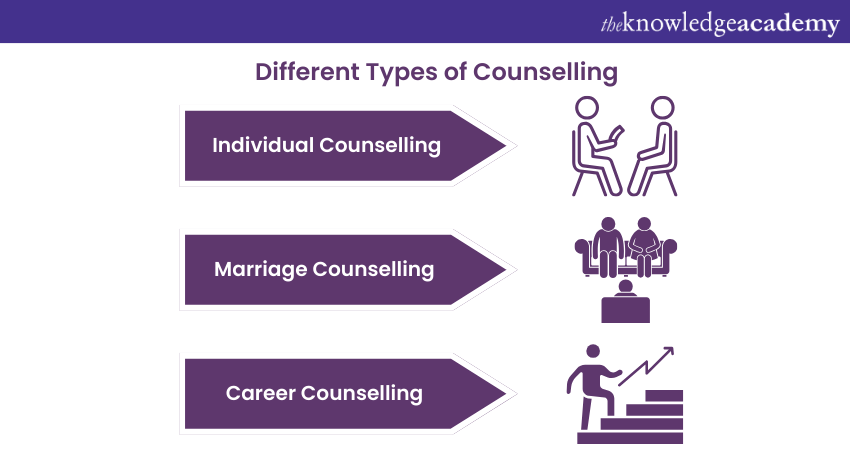Practical Guide to Making the Most of virtual therapy
Exploring the Advantages of Virtual Therapy in Modern Mental Healthcare
The increase of virtual therapy marks a considerable shift in psychological healthcare. It uses improved access, permitting people from diverse backgrounds to look for assistance without geographical restrictions. Flexibility in scheduling accommodates varying way of livings, while the convenience of home can foster visibility. The ramifications of these changes prolong past plain benefit. The evolving landscape of therapy raises essential questions regarding its long-term effects on person engagement and treatment end results.
Improved Ease of access for All
Standard therapy usually provides obstacles such as geographical location and scheduling problems, virtual therapy significantly boosts ease of access for individuals seeking psychological health support. By eliminating the need for physical traveling, virtual therapy allows clients from remote areas or those with wheelchair difficulties to connect with qualified professionals. This mode of therapy can get to underserved populations that may lack local mental health sources, thereby resolving differences in accessibility to care. Additionally, virtual platforms can accommodate diverse needs, supplying services in several languages and accommodating numerous social backgrounds. Customers can engage with a more comprehensive range of specialists, supplying them with alternatives that straighten with their specific demands and preferences. This enhanced accessibility promotes a much more comprehensive environment, allowing individuals to seek assistance without the stigma usually connected with in-person gos to. Generally, virtual therapy stands for a considerable innovation in making psychological healthcare much more available to all.
Versatility in Organizing Procedure

As virtual therapy remains to gain grip, its fundamental flexibility in scheduling sessions verifies to be a substantial benefit for many people. Unlike conventional in-person therapy, virtual therapy permits customers to select session times that finest fit their individual and specialist commitments. This flexibility accommodates those with demanding work schedules, family responsibilities, or other dedications that can make attending physical visits testing.
Moreover, clients can conveniently reschedule or change their sessions as required, lowering the stress related to inflexible visit systems. The schedule of numerous time ports throughout the week, consisting of nights and weekends, further improves accessibility. This versatility not just urges consistency in presence however additionally fosters a greater commitment to the restorative procedure. Ultimately, the versatility in organizing sessions stands for a transformative change in psychological healthcare, empowering individuals to prioritize their wellness without compromising various other aspects of their lives.
Comfort of a Familiar Environment
The comfort of a familiar setting significantly enhances the effectiveness of virtual therapy for lots of customers. Taking part in therapy from the safety of their very own homes enables individuals to feel more at convenience, reducing anxiety that may go along with traditional in-person sessions. This experience can help with open communication, making it possible for customers to share their ideas and sensations much more openly.
Moreover, the existence of personal items and the capacity to manage their environments can add to a sense of protection and relaxation. Clients commonly report that remaining in a comfortable space permits them to concentrate much more on the therapeutic process instead of the establishing itself.
Furthermore, the informal nature of virtual sessions can aid dissolve barriers that might exist in a typical office atmosphere, fostering a deeper connection with specialists. Generally, the comfort of acquainted surroundings plays a necessary duty in boosting the therapeutic experience and efficiency for many people seeking psychological health and wellness support.
Bigger Series Of Therapeutic Choices
A wider series of therapeutic alternatives becomes offered with virtual therapy, enabling customers to accessibility different methods that might not be feasible in standard settings. This flexibility allows individuals to explore varied strategies such as cognitive-behavioral therapy, mindfulness practices, art therapy, and even specialized interventions like trauma-informed treatment or dialectical habits therapy.
Additionally, clients can select from a broader spectrum of specialists, consisting of those who concentrate on niche areas or details populations, boosting the possibility of locating an ideal match. Virtual platforms commonly provide access to team therapy sessions, assistance neighborhoods, and workshops that may be geographically unavailable otherwise.
This range encourages customers to engage in their healing procedure according to their one-of-a-kind preferences and requirements, potentially raising motivation and dedication to therapy. Because of this, the landscape of psychological wellness treatment comes to be extra comprehensive and adaptable, providing to a broader range of private experiences and difficulties.
Lowered Preconception Surrounding Therapy
Accessing therapy with virtual platforms adds to a substantial decrease in the preconception typically connected with mental healthcare. By offering a very discreet and exclusive setting, virtual therapy permits individuals to look for help without the fear of being evaluated or determined. This privacy charms to those that might or else hesitate to pursue in-person therapy due to social perceptions bordering mental health.
As the prevalence of virtual therapy rises, it normalizes the conversation around mental health, making it a much more appropriate part of daily life. Individuals frequently feel more comfy reviewing their experiences on-line, advertising visibility and reducing sensations of seclusion. The access of these solutions also encourages a wider group to engage with mental health and wellness resources, promoting a society of assistance as opposed to pity. Ultimately, the increase of virtual therapy plays a vital role in reshaping perspectives in the direction of seeking aid, contributing to a much more accepting society relating to psychological health difficulties.
Cost-Effectiveness and Price

Lowered Session Costs
Several people looking for mental health and wellness assistance find that virtual therapy considerably reduces session expenses contrasted to traditional in-person choices. The removal of traveling expenditures and time off work commonly adds to overall savings. Furthermore, numerous virtual specialists offer competitive rates due to lower overhead prices connected with maintaining a physical office. This shift in expenditure allows customers to gain access to quality psychological health services without the economic pressure that may come with conventional therapy. For lots of, this price enables much more regular sessions, which can improve treatment results. As an outcome, virtual therapy not just democratizes access to psychological health and wellness care but also gives a lasting economic version that lines up with clients' budgets, making mental health support a lot more possible for a bigger target market.
Expanded Accessibility Choices
While conventional therapy typically offers logistical barriers, virtual therapy greatly increases gain access to options for people seeking psychological health treatment. By getting rid of the need for traveling and allowing flexible organizing, virtual therapy accommodates diverse way of lives and commitments. This ease of access is especially advantageous for those in remote locations or with wheelchair difficulties. Additionally, the cost-effectiveness of virtual therapy minimizes economic stress, making mental health services a lot more reachable. Several systems offer tiered rates or moving scale fees, advertising affordability. Insurer increasingly identify virtual therapy, additional boosting its monetary ease of access. In general, virtual therapy not just broadens the range of who can receive treatment yet likewise addresses financial barriers, making psychological health assistance much more inclusive and attainable for all.
Enhanced Continuity of Care
Enhanced continuity of treatment becomes a substantial advantage of virtual therapy in modern mental healthcare. This technique permits individuals to maintain constant interaction with their therapists, no matter geographical barriers or adhd counselling scheduling problems. couples counselling. The versatility of virtual sessions cultivates normal check-ins, which are important for keeping an eye on progress and adjusting treatment plans as necessary
In addition, digital health and wellness records and telehealth platforms facilitate smooth details sharing among care service providers. This interconnectedness guarantees that all specialists associated with a patient's care are updated on treatment developments, resulting in more coordinated and effective interventions.
Clients typically experience decreased anxiousness and increased engagement due to the benefit of accessing therapy from acquainted environments. Such ease of access improves adherence to treatment programs, eventually enhancing results - couples counselling. To summarize, virtual therapy not only bridges gaps in psychological wellness solutions yet also strengthens the continuity of care, a crucial component of successful restorative partnerships
Often Asked Questions
How Does Virtual Therapy Make Certain Discretion and Privacy for Clients?
The current inquiry addresses the actions virtual therapy utilizes to protect customer confidentiality. Using encrypted platforms, safe and secure logins, and compliance with guidelines like HIPAA, virtual therapy warranties that delicate info remains private and hard to reach to unapproved individuals.
Can I Change Therapists Conveniently in Virtual Therapy?
Changing therapists in virtual therapy is usually simple. Clients can communicate their wish for a modification via the system, permitting for flexibility in locating a better suit without the logistical challenges of in-person consultations.
What Innovation Do I Need for Virtual Therapy Sessions?
To join virtual therapy sessions, a private usually requires a trustworthy internet connection, a computer system or mobile phone with a cam and microphone, and access to a safe and secure video conferencing system specified by their therapist.

Are Virtual Therapy Procedure as Effective as In-Person Procedure?
Current researches suggest that virtual therapy sessions can be just as effective as in-person sessions, relying on the person's preferences and conditions. Aspects such as convenience and accessibility may boost the overall restorative experience for some clients.
What Should I Do if I Experience Technical Issues Throughout a Session?
If technical issues arise during a session, one ought to smoothly communicate the trouble to the therapist, effort to reconnect, or switch to a back-up method. Perseverance and versatility are important in taking care of these interruptions.